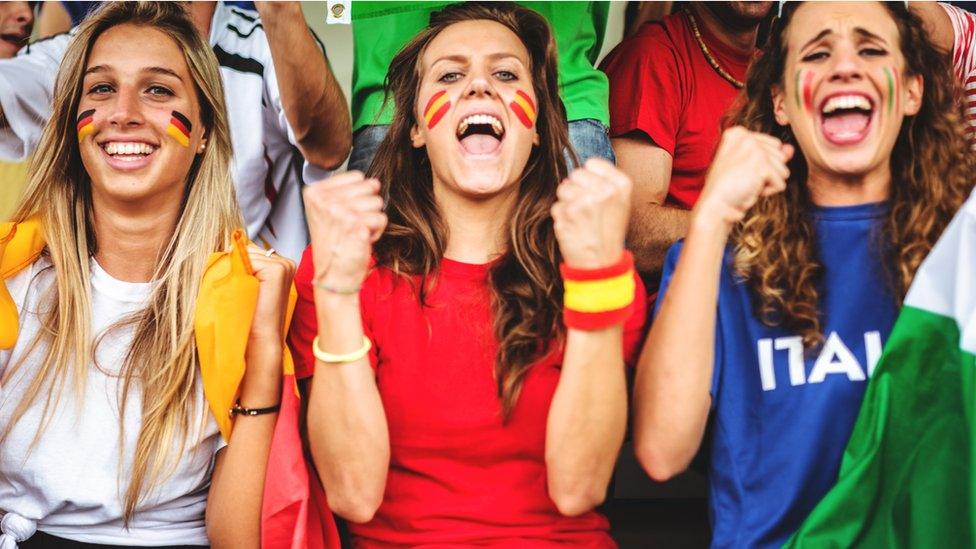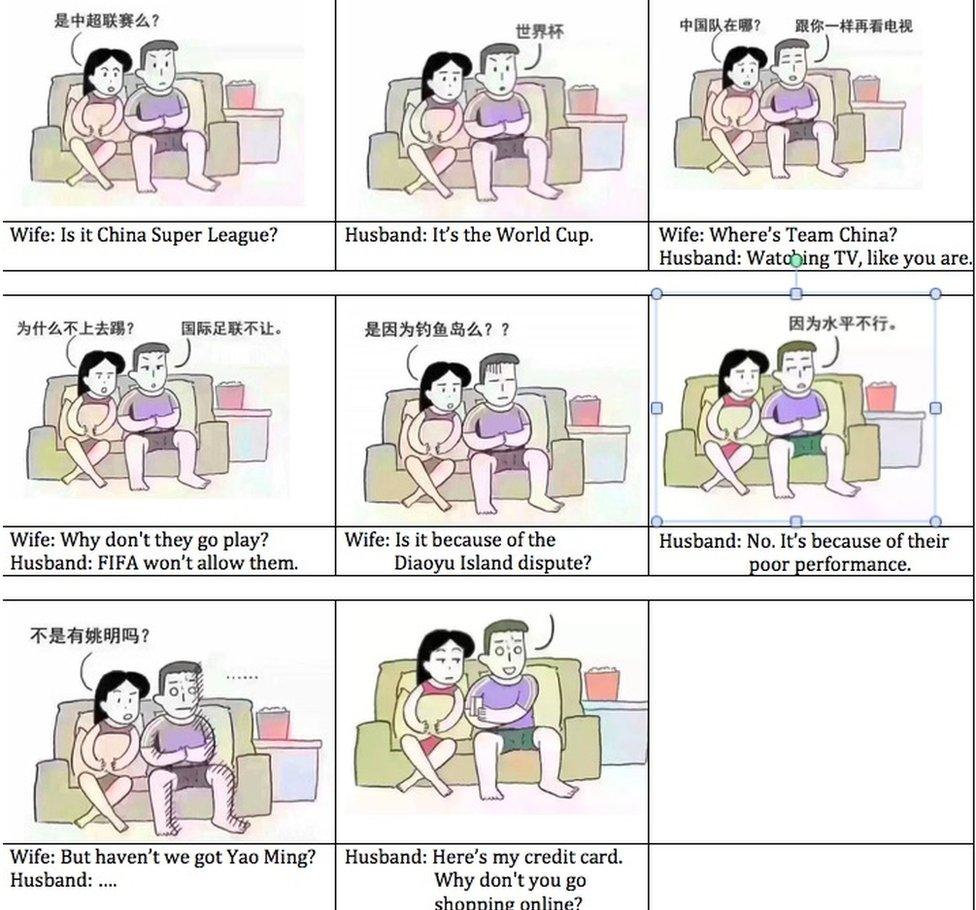World Cup 2018: Is football still sexist?
- Published

It's 2018, so no-one objects to women knowing stuff about football, talking about it, or just watching a game, right?
Well, some incidents in this World Cup have left people wondering how much has actually changed in the beautiful game and whether women are being treated unfairly.
On Tuesday Getty images published a photo gallery of "the hottest fans at the World Cup" featuring exclusively young women.
The post attracted criticism from social media users for being outdated., external
Twitter account Women in Football asked, external, "times are changing so why don't you?"
Allow X content?
This article contains content provided by X. We ask for your permission before anything is loaded, as they may be using cookies and other technologies. You may want to read X’s cookie policy, external and privacy policy, external before accepting. To view this content choose ‘accept and continue’.
The post was later removed by Getty, who said that it was a "regrettable error in judgement" and that the photographic agency would be launching an internal investigation.
Female sports commentators in particular have been patronised, criticised and even harassed on camera by social media, passing fans and pundits alike.
Brazilian sports reporter Julia Guimareas was reporting live from Yekaterinburg, Russia when she was forced to dodge a kiss by a passerby.
"Don't do this. Never do this again. It's not right," she shouted after him, forcing him to apologise. A tweet congratulating Ms Guimareas for standing up to harassment, external was liked 64,000 times.
Allow X content?
This article contains content provided by X. We ask for your permission before anything is loaded, as they may be using cookies and other technologies. You may want to read X’s cookie policy, external and privacy policy, external before accepting. To view this content choose ‘accept and continue’.
Australian SBS World Cup presenter Lucy Zelic has been attacked by online trolls for making a point of pronouncing players' names correctly, as they would be in their home country.
After she was branded "annoying" and "insufferable", Zelic's co-host Craig Foster hit back at critics on Monday, external, explaining that their programme aimed to respect diverse linguistic traditions and cultures.
It's been a World Cup of firsts for women, which has raised the profile of female sports commentators.
BBC journalist Vicki Sparks became the first woman to commentate live on a televised World Cup match in the UK last week, while US networks Fox and Telemundu both reported that they featured the first women to commentate live on World Cup games in North America.
But not everyone was a fan of the change. Ex-footballer Jason Cundy, who was not invited to commentate in this World Cup, has come under fire for saying that women's voices are too high-pitched for football punditry.
You might also be interested in:
Some observers have criticised the return of the 'babe cam' - the practice of TV cameras lingering slightly too long on young women in stadium stands - and Twitter accounts that rate the attractiveness of female fans.
Allow X content?
This article contains content provided by X. We ask for your permission before anything is loaded, as they may be using cookies and other technologies. You may want to read X’s cookie policy, external and privacy policy, external before accepting. To view this content choose ‘accept and continue’.
Allow X content?
This article contains content provided by X. We ask for your permission before anything is loaded, as they may be using cookies and other technologies. You may want to read X’s cookie policy, external and privacy policy, external before accepting. To view this content choose ‘accept and continue’.
Fake fans
Meanwhile, in China, ordinary women can't even watch a game in peace without being accused online of being 'fake fans'.
Jokes mocking women football fans have been circulating, suggesting that they don't really understand football and that they are watching the World Cup only to impress their boyfriends, to seek attention, or to check out handsome and muscular footballers.
One blogger, Shi Shusi, commenting on a report that more women than men travelled to Russia for the World Cup, wrote on social media platform Weibo, "A feast for fake football fans has begun."
One cartoon has been shared that scorns, external women's lack of knowledge about the World Cup and football in general.

A cartoon circulated online in China mocking women for lack of football knowledge (Chinese-English translation by BBC News)
But female football fans are fighting back. One blog compared strong performance of China women's football team with their male counterparts who failed to qualify for the World Cup.
Another wrote: "I don't understand football NOT because I'm a woman, but because I just don't care about the game. Stop making everything about gender difference."
So, if you're feeling a bit conflicted when you see a woman on TV talking about football, remember the wise words of BBC Sports reporter, Dan Walker: "Get over it. We can all enjoy the World Cup."
Allow X content?
This article contains content provided by X. We ask for your permission before anything is loaded, as they may be using cookies and other technologies. You may want to read X’s cookie policy, external and privacy policy, external before accepting. To view this content choose ‘accept and continue’.
Additional reporting by Lily Lee in Beijing